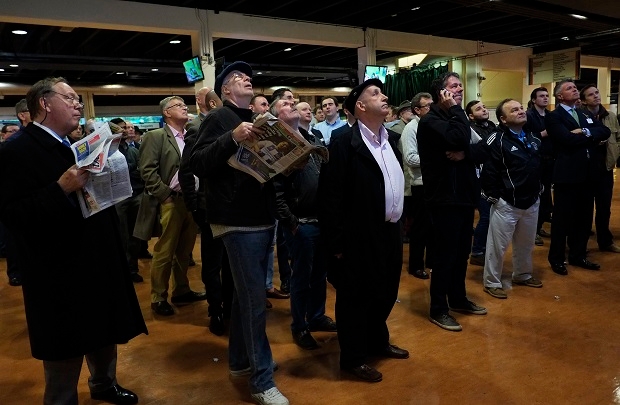Harriet Harman has set the hare running this morning by proposing a levy on sports betting. The shadow sports minister Clive Efford said:
‘We believe it is right that businesses that make money from sport should contribute to sport. We are consulting on whether we should introduce a levy on betting, including online betting, to fund gambling awareness and support for problem gambling but also to improve community sports facilities and clubs.’
Harman and Efford have also singled out the Premier League. They propose that its voluntary levy on broadcast deals (worth £5.5bn) be turned into a ‘proper tax’, which would raise £275m for grassroots football.
The improvement of grass roots sport is a noble ambition, and one supported by the gambling industry. A spokesman from William Hill told The Spectator that the company ‘welcomed all initiatives’ to improve local and school sport, but questioned the existing funding model. ‘We don’t think that the problem should be passed on to us,’ the spokesman said. And here’s why. The gambling industry contributes more than £1bn to the Treasury, with a further £400 million expected to be raised next year thanks to initiatives announced at the last Budget.
The politics of this Labour proposal are confused. Premier League football is, for the most part, a middle class activity. The best season tickets at Tottenham Hotspur, for example, cost £1,320. A Sky Sports subscription, for instance, costs more than £500 a year. I suspect that a levy on the league would be a popular move in some parts of the country: the last time I was in Newcastle, several fans of the Magpies told me that Sky and the Premier League had wrecked English football by concentrating wealth in the hands of a few big or fashionable clubs, which was having an adverse effect on smaller clubs, the lower leagues and grassroots. Furthermore, people who buy season tickets and subscriptions could probably afford a small hike in prices to cover the cost of the new levies. That’s not to say that the levies would be equitable: as Guido points out the Premier League already pays £1.3bn in tax, which seems plenty.
When it comes to sports betting, those who attend Premier League football or watch it on subscription TV are not the only punters in town. Gambling is, for the most part, a working class (or workless class) activity. Most of those who gamble regularly (either at the bookies’ or online) do not have £1,320 to splurge on a season ticket. A visit to your local high street betting shop will confirm this — or, better still, read Mike Atherton’s excellent history of gambling. He describes a class of people who gamble for the thrill of it (winning is rare) and to watch live sport at a bookies’. Few of them have a ‘problem’ — save for a lack of opportunity and affluence. The likelihood is that they will pay for this proposed tax.
Tory spinners are rather pleased with Harman’s announcement. It confirms their narrative that Labour’s only idea is to raise your taxes in order to avoid ‘tough decisions’ on the public finances. It’s an effective if easy line. The greater challenge for the Tories is to explain why this proposal in particular shows Labour to be out of touch with the very people it claims to represent. Not the smart professional who goes to White Hart Lane every fortnight; but the happy go lucky punter who goes to Ladbrokes every day.






Comments